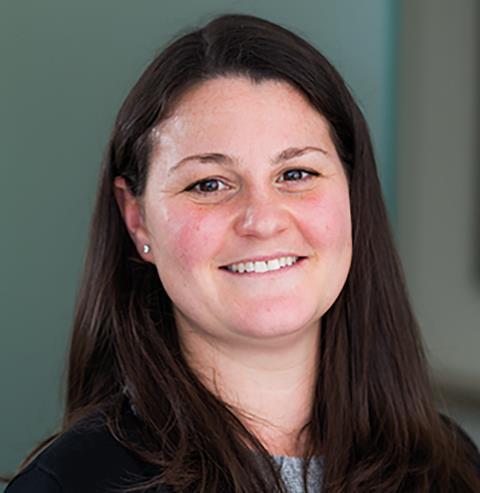Partner and head of the dental negligence team, Bath
I recently unearthed an old school essay from when I was 11, in which I had written of my desire to be a lawyer ‘when I grow up’. My father is a barrister. He often worked at home and I would eavesdrop on him dictating. Sometimes I would accompany him on early morning trips to Bristol to pick up a DX or pop into chambers. It was a world I could not wait to be part of.

I shied away from studying law at university as I wanted to keep my options open. Instead I chose to study English and philosophy at Durham University. My choice of degree naturally paved the way for a law conversion course which I undertook at UWE in Bristol. From there I joined RWK Goodman as a trainee in 2006 – and have not looked back since.
I have found that, as you progress in law, your job becomes increasingly managerial. I recently completed a ‘manage and motivate’ programme which has enhanced my managerial skills, enabling me to focus on being inclusive and supportive, promoting better communication, leading by example, and understanding people’s needs.
When I first began a career in clinical negligence, I had never even heard of dental negligence. My first solo case was a dental negligence claim, and it was a great starting point as the types of injuries tend to be easier to get your head around. Once I got to grips with the terminology and various tooth notations, it quickly became clear that this was a niche area I could specialise in. Over the years, we began to accumulate more dental work and I was given the opportunity to develop and grow a specialist dental negligence team. Having a niche area of law really enables you to become an expert in that field. We tend to work closely with the same medico-legal experts and counsel.
'It is frustrating that a dentist can practise without indemnity insurance. This can make it challenging to sue them for substandard treatment. Most dentists are independent contractors and are personally liable for their actions'
I work on a mix of both clinical and dental negligence cases. There is a wider range of dental negligence claims than you may imagine; claims can include substandard cosmetic dentistry, orthodontic dentistry, failure to diagnose gum disease, extraction of wrong teeth, hypochlorite spills etc. In relation to my clinical negligence cases, I have dealt with a lot of delay in cancer diagnosis claims and suspect this is in part to do with the difficulty in obtaining appointments over lockdown.
Our department was quieter during the pandemic, as no or little treatment during lockdowns inevitably resulted in fewer claims during that period. That said, we have yet to experience the full impact of years of limited NHS treatment and this will inevitably lead to an increase in claims as the resulting issues become more obvious.
NHS dentistry is in crisis. Many people are struggling to register with an NHS dentist or are unable to make appointments, problems that have been heightened by Covid restrictions and dealing with a backlog of appointments. NHS England announced that £50m will be made available to help provide 350,000 dental appointments nationwide. This will hopefully enable people to access dental treatment and avoid the need to take matters into their own hands.
The impact dental negligence has on patients is underestimated. Our teeth are so important but taken for granted until something goes wrong. As a nation we are becoming increasingly fixated on having a ‘perfect smile’, and when negligent treatment leads to loss of teeth, clients are left devastated, self-conscious, and sometimes too ashamed to smile. Most of my clients have suffered a psychiatric injury because of dental negligence.
It is frustrating and frightening that a dentist can practise without indemnity insurance. This can make it challenging for us to sue them for substandard treatment. Most dentists are independent contractors, including locums, and are therefore personally liable for their actions. In the past, it has been extremely unfair when a victim of substandard treatment has been unable to seek compensation because their dentist is uninsured or has moved abroad.































No comments yet